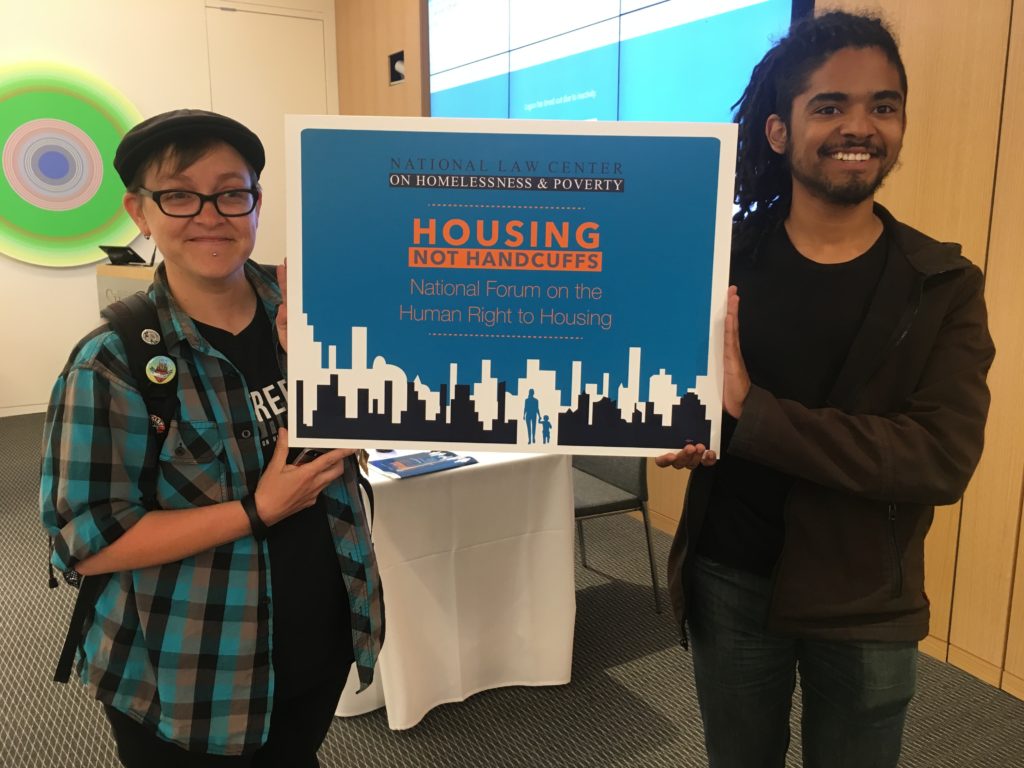Earlier this June, the Coalition on Homelessness was invited to the National Forum in the Human Right to Housing in Washington D.C. The Conference was facilitated by the National Law Center on Homelessness and Poverty. It was a gathering of frontline service providers, grassroots organizers, and legal advocates working on behalf of poor, unhoused communities across the United States. Over the course of the two-day conference, the attendees shared stories of their local campaigns as well as different strategies and lessons learned.
The first day of the Conference was dominated by the looming federal budget cuts. Each locale described how their organizing has been affected by this knowledge. From Indiana, to Delaware, from New York to Florida, the call was the same: RESIST!
All attendees agreed that the only way forward in the face of the 45th administration, in the face of austerity, is continuing to put pressure on all levels of government regardless of who is in office.
A major takeaway from the conference was that we had to acknowledge the level of difference between each community and how we can learn from their very different strategies. In San Francisco, the Coalition has 30 years of experience fighting for homeless people. More importantly, we have 30 years of relationships, past battles, and victories that affect the overall character of our work. We speak Truth to Power and we are very good at mobilizing our community to raise hell at every opportunity. During the conference, we met so many people that were the first in their community to start the fight. Communities with even more conservative, entrenched interests that seek to cause harm to the poor and unhoused.
The greatest lesson we learned was how important litigation was for smaller, more recently formed organizations to fight criminalization of homeless people in conservative states. We heard from campaigns in Michigan and Florida wherein organizers worked for years, winning small court decision after another, building the necessary precedent to fight later injustices in court.
We heard from many legal advocates that worked with folks to build their cases against city governments across the United States. Cases involving lost property, quality-of-life citations, and grievances involving access for folks with disabilities. The last topic was of serious interest for the Coalition. Many times in San Francisco, city officials claim that removing encampments is part of a larger campaign to provide greater access for folks with disabilities. What we learned from the legal advocates was that many times by providing this “access” they are actually denying the due rights of the disabled folks that are unhoused and living in the encampments. Many times during sweeps, folks with disabilities are not even considered and are the most vulnerable to losing property and injury. Legal advocates shared stories of their success filing grievances against city officials that had denied disabled people their rights. This was an important lesson for the Coalition in centering our work around disability justice.
By the end of the conference, we gained a fresh perspective on the fight against criminalization. We learned valuable lessons on how to better represent all members of the unhoused community in our work.


